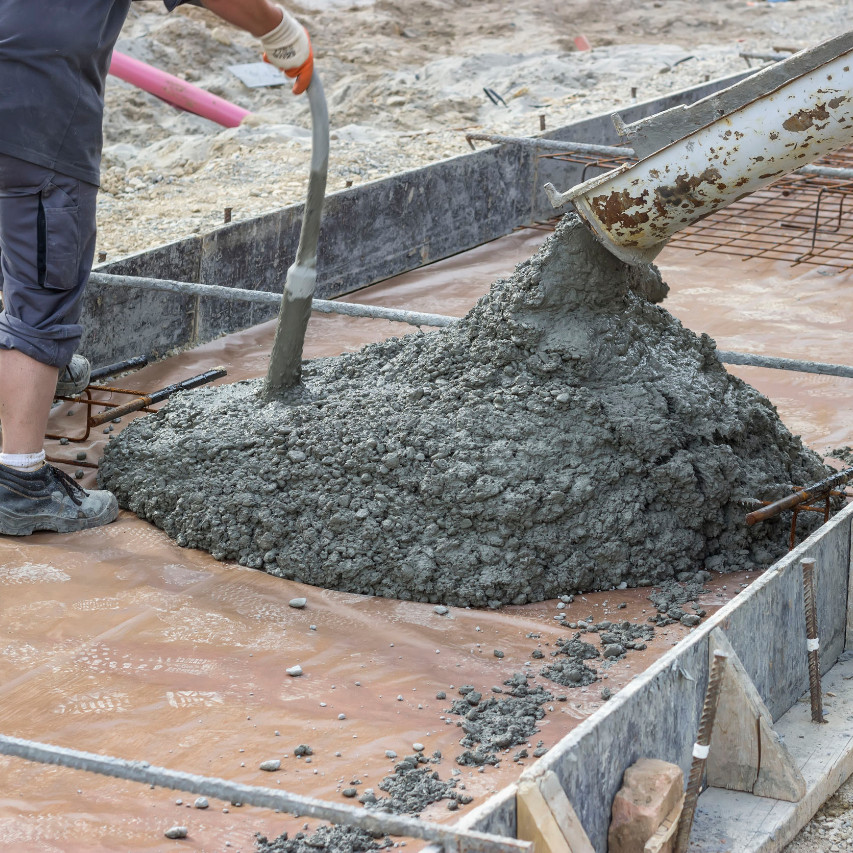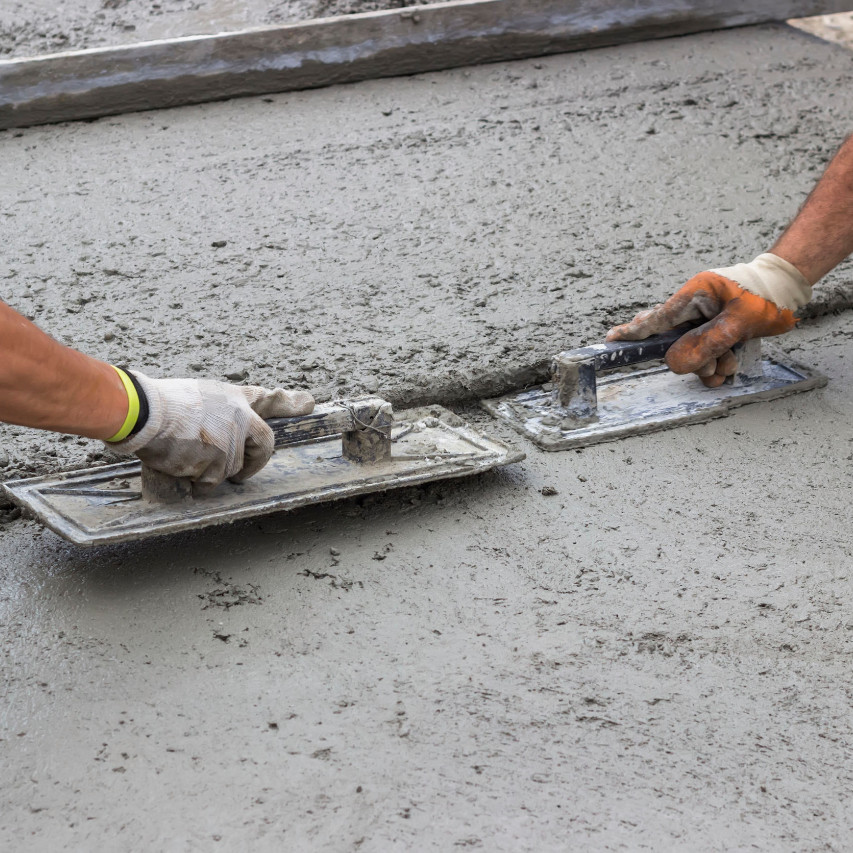
Can I pour my own concrete slab?
Concrete services like those eSquared Asphalt Maintenance in Waco and Temple, TX are done by trained professionals. While pouring your own concrete is absolutely possible, however, there are several particulars that must be considered before deciding whether you want to take care of the process. Take a driveway installation, for example, the brunt of that, and anything including concrete is digging out where the concrete will be laid. There then has to be some preparation on the freshly dug-up ground before further steps are taken. If done incorrectly, freshly dried concrete can sink into the ground or break apart under strain, especially when it comes to a driveway.
A concrete slab is something that is highly necessary for most construction jobs because it is the groundwork for everything from sidewalks to buildings. In concrete services, a concrete slab is a flat measured-out surface culminated in metals and concrete. There are actually several different slabs with names that help amply describe the types which include:
- Waffle slab
- One-way joist slab
- One-way slabs on beams
- Flat slabs
- Flat plates
- Bubble deck slab
- Hollow core slab
- Hardy slab
With several more than what is shown on this list, each type of concrete slab is specific in purpose. While a person can do the work on their own, there is a fair amount of training a person takes to become an expert in order to do it professionally.
Will concrete crack without rebar?
Rebar serves a purpose to keep anything built from concrete structurally sound and when it is in the form a concrete slab to help support the weight of whatever traffic that crosses it. When not included in the process, anything of significant size will suffer cracks and breaks due to the lack of rebar. Furthermore, due to the shifting nature found in dirt and soil, concrete service providers are in full agreement that rebar makes concrete structures last longer.
Especially in the case of four inch slabs and as already mentioned, rebar reinforces concrete structures. Just as well, rebar serves to save the owner a significant cost in future repairs whether it’s cheaper or higher cost support systems that can include rebar. The point of the matter is that modern concrete services and structures require a rebar system or something akin to it.
Do you need gravel under concrete?
For any concrete structure big or small, a gravel base underneath the concrete slabs is a necessary part of the project in order for it to last longer than the short term and be fully functioning. The reason is that moisture and water don’t simply dry up on the concrete surface, but instead drain down underneath into the soil. With the shifting nature of dirt and soil, concrete will crack due to the gradual movement that will happen without gravel. A gravel base solves both problems by heavily dampening the shifting problem and giving it a proper method of drainage.
In clay soil, gravel is the best form of base underneath the concrete that will help drain pooling water. While not as good as gravel, sand also helps drain water that comes in from the top of the concrete. The preferred base of gravel or sand tends to be between four to six inches so as to give plenty of room for drainage.
Should a concrete patio be anchored to the house foundation?
Those unfamiliar with the technicalities of concrete services may see an opportunity in setting up a concrete extension on the foundation of their home or over old concrete structures. Unfortunately, that is highly recommended by all experts unless several extra and expensive steps are taken. The reason for the former is that the foundation of your home is set in place and established. When connecting a new structure, it will expand and move with the different temperatures of the year. It will also eventually crack your foundation due to being more susceptible to erosion in the soil underneath. When it comes to old concrete being used as a foundation, there will be several problems that should be considered. Any cracks however small will transfer to the new concrete structure and will show visibly. You will also want a new foundation that will perform better and longer than what is already underneath the old concrete.

What’s the difference between a concrete slab and a cement slab?
This is a common misconception among those unfamiliar with the details that go into training for concrete services. Concrete is a mixture of several ingredients that can include paste and aggregates. The former is in fact water and cement that hold together the aggregates. Mixtures of aggregates with the paste can include gravel, sand, or crushed stone. The desired appearance largely defines the ingredients of the full mixture that will make up the concrete. For any concrete services and for more information, make sure to contact us before considering doing the job yourself. Call us at 254-716-8685 today to get more information and to set up an appointment for our concrete services.
